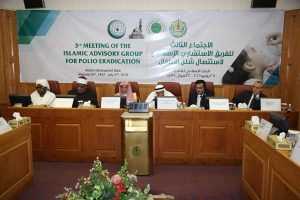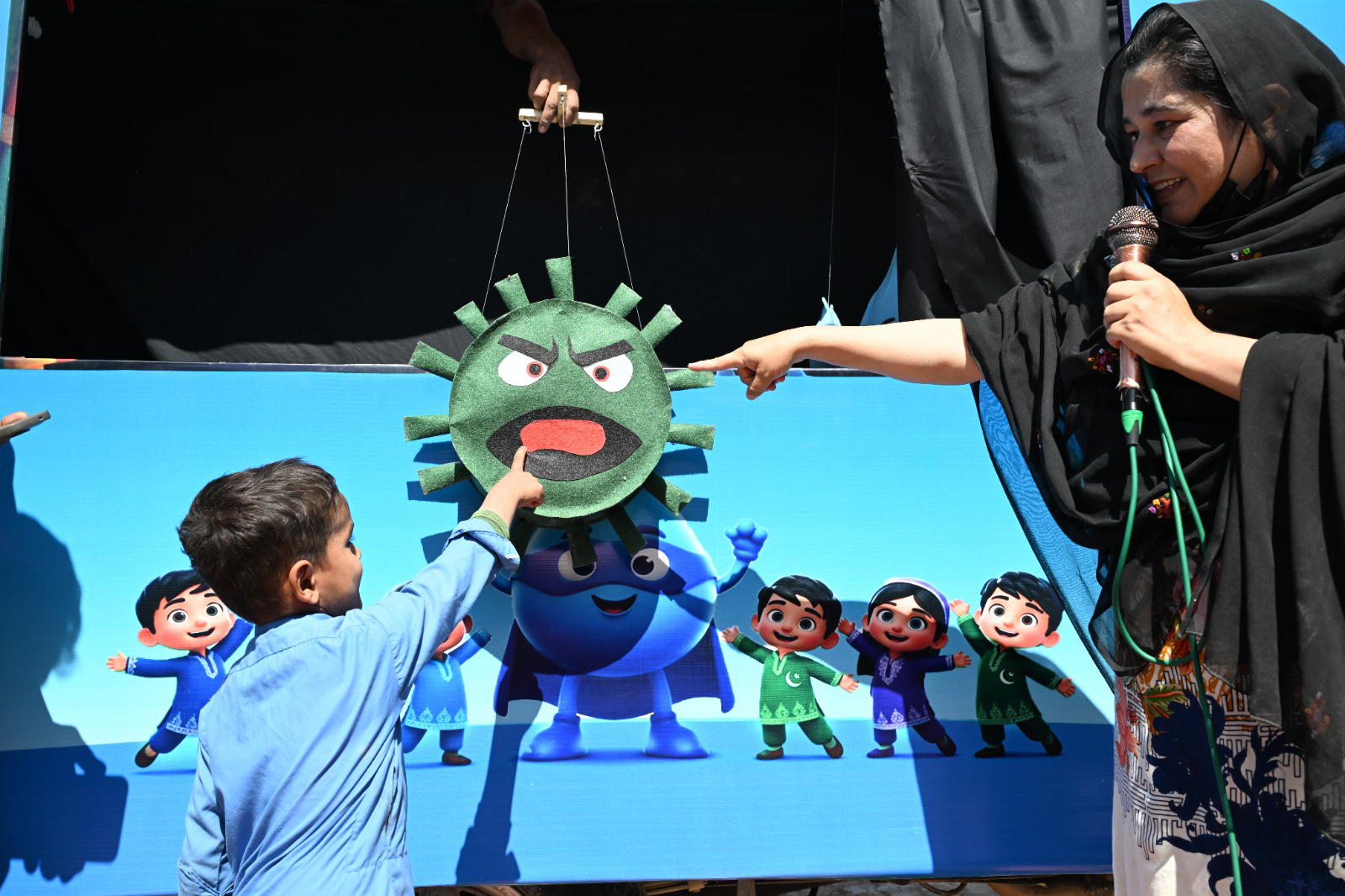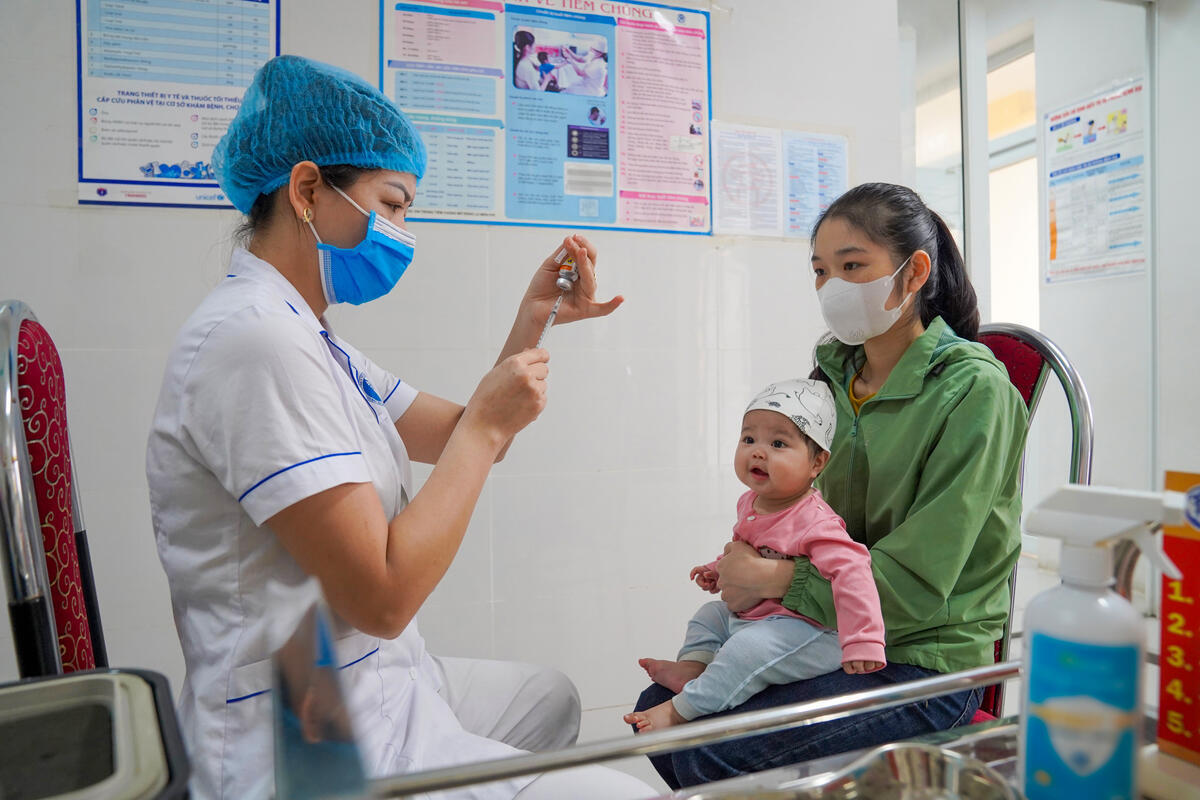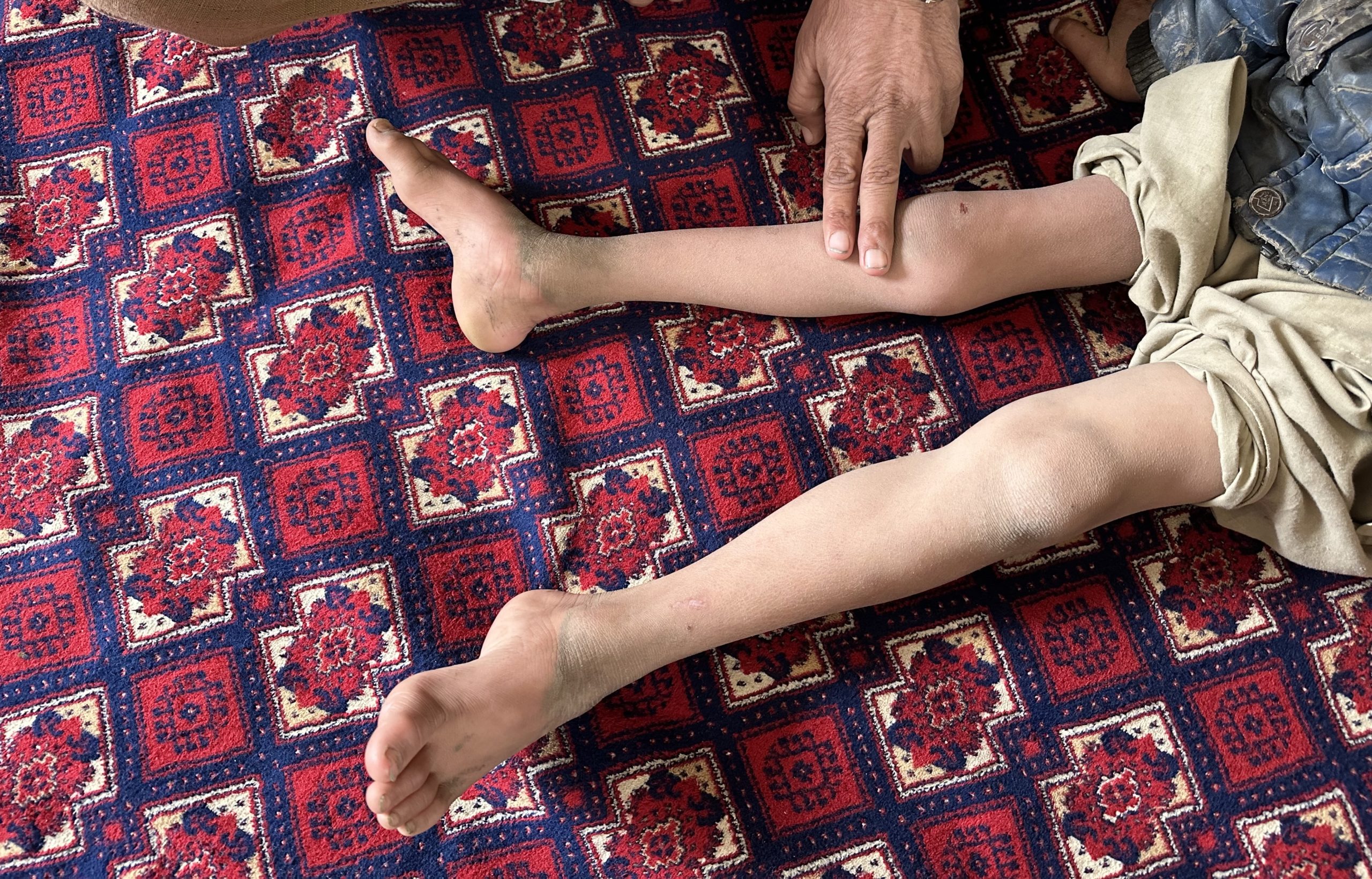
© Courtesy IAG
The Islamic Advisory Group for Polio Eradication (IAG) met in July to discuss eradication strategies as part of the final push to end polio in Pakistan and Afghanistan. The third annual meeting was held at the Islamic Development Bank’s headquarters in Jeddah.
Islamic scholars through the IAG play a vital role in guiding and rectifying understandings of health matters. In his speech to the IAG, the Regional Director of the World Health Organization’s Regional Office for the Eastern Mediterranean, Dr. Ala Alwan, said he had witnessed the positive role of the IAG through its local off-shoots during a recent visit to Pakistan in June. “The impact of your work was evidenced through the positive contribution of the National Islamic Advisory Group (NIAG) in Pakistan at the national and provincial levels and down to Union Council and community level through its engagement with the local religious scholars in giving support and protection to the frontline health workers,” he said.
Building trust
In a statement issued from the meeting, the IAG stated that it “… reiterates its trust in the safety and effectiveness of polio and other routine childhood vaccinations as a life-saving tool which protects children; and acknowledge that it fully conforms to Islamic rulings.” This stance from the IAG has played a crucial role in addressing the need for trust building, reliable information relating to vaccines, and accessibility issues in reaching every last child in immunization campaigns in several Muslim countries.
The IAG also affirmed the religious obligation of parents to vaccinate their children to keep them healthy. Dr. Saleh Bin Abdallah Bin Humaid, President of the IIFA reminded meeting participants of Prophet Mohammed’s call to Muslims that they should “seek treatment, O worshippers of God, for God did not send down an illness except having sent down a medicine for it apart from ageing.”
Continuing support
Dr Alwan also commended the role of the governments of Pakistan and Afghanistan for their efforts to eradicate polio, an effort which came about partially through the support of the Islamic Development Bank.
“The bank has provided technical grants to support the efforts of the Somali government and the partners in order to control the outbreak of polio which spread across the Horn of Africa in 2013,” said Dr. Ahmad Mohamed Ali, President of the Islamic Development Bank. “It has also provided an additional US$100 million of funds to support the efforts of the Pakistani government and the partners in order to eradicate polio by the end of 2018, with the Will of Allah.”
Expanding their Role
At the 13th Islamic Summit Conference held in Istanbul in April 2016, leaders of the OIC recommended that mother and child health priorities also need to be addressed in order to bring down maternal and child mortality.
“Building on the successful experience in improving polio immunization services, the Islamic Advisory Group is now well placed to further help promote health care in the Muslim countries, which still carry a heavy burden of preventable causes of mortality and morbidity,” Ambassador Mohammed Naeem Khan, Assistant Secretary General of the OIC for Science and Technology told IAG members on behalf of Secretary General Mr. Iyad Ameen Madani.
The IAG was launched in 2013 after consultations between the International Islamic Fiqh Academy (IIFA), Al Azhar Al Sharif, the Islamic Development Bank (IsDB), and the Organisation of Islamic Cooperation (OIC). The leaders of these organizations, as well as other religious scholars, technical experts and academics from the Muslim World all participated in the IAG.
As a reflection of this recommendation the IAG stressed “the need for this group to promote and influence better health outcomes for families, particularly mothers and children, and commit to expanding the scope of this Group to address other key mother and child health interventions.”



